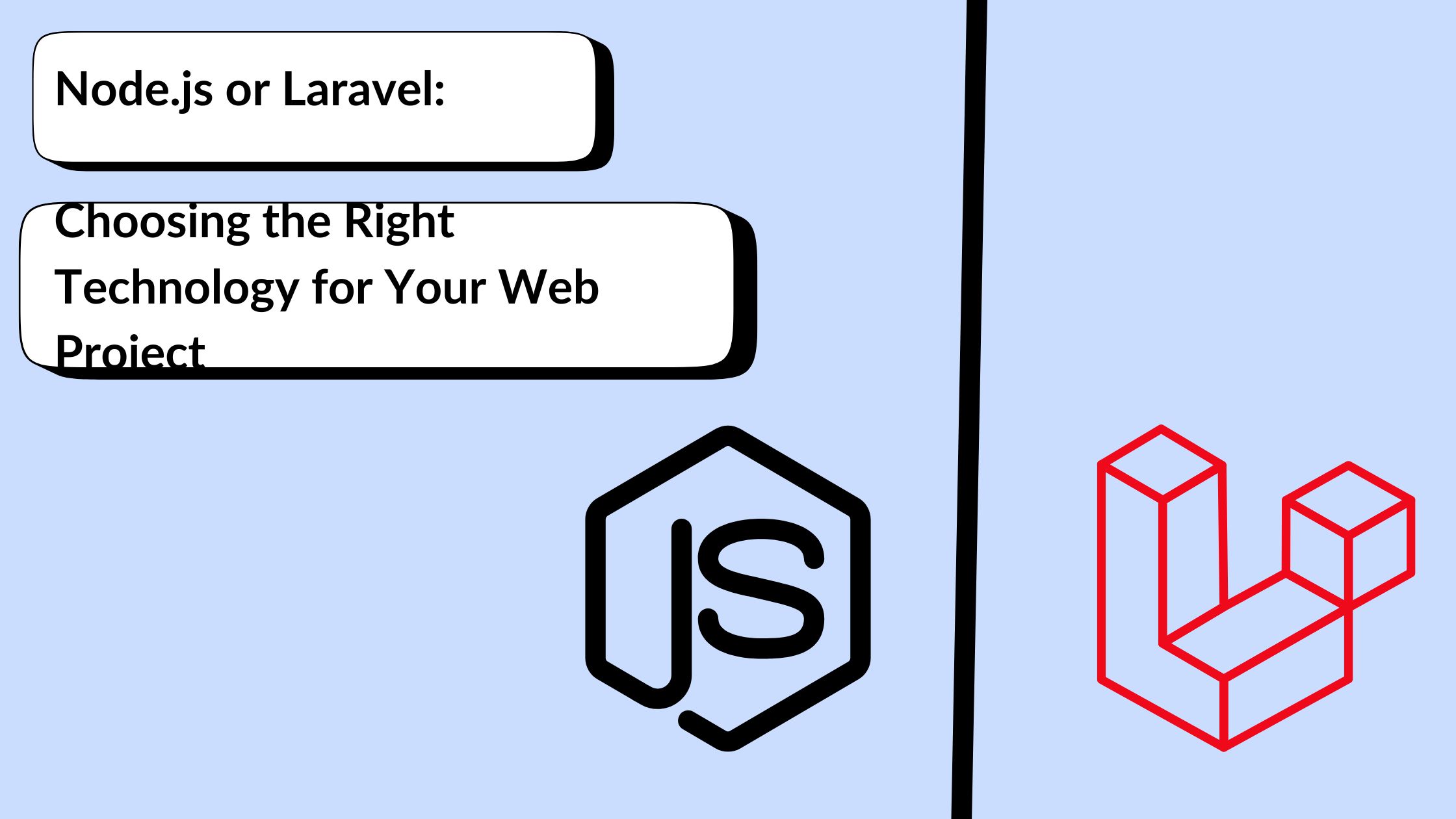Node.js or Laravel: Choosing the Right Technology for Your Web Project
 Lucy
Lucy
The project's success is essential to selecting the appropriate technology stack for web application development. Laravel and Node.js are two well-liked choices that are frequently taken into account. The particular requirements and objectives of your project will determine which of the two technologies is best for you.
Overview of Node.js
A JavaScript runtime environment called Node.js enables programmers to execute JavaScript on the server side. It is well-known for processing concurrent requests with great efficiency because to its event-driven, non-blocking I/O approach. Because of this, Node.js is a great option for creating real-time applications like chatbots, streaming services, and live updates. It is also perfect for high-performance apps and microservices due to its lightweight design and quick execution speed.
Overview of Laravel
In contrast, the PHP framework Laravel adheres to the Model-View-Controller (MVC) architecture. It is a favorite among developers for creating intricate web applications because of its well-known simplicity, elegance, and powerful capabilities. Numerous integrated features offered by Laravel, including as routing, authentication, and ORM, streamline the development process and expedite project completion. It works especially well with content management systems and organized online apps.
Key Differences
Here are some key differences between Node.js and Laravel:
Feature | Node.js | Laravel |
Language | JavaScript | PHP |
Architecture | Event-driven, non-blocking I/O | MVC |
Performance | High | Moderate to High |
Use Cases | Real-time apps, APIs, microservices | Complex web apps, CMS |
Learning Curve | Moderate | Steep |
Community | Large and active | Growing and active |
Which is better Laravel or node JS?
Choosing between Laravel and Node.js ultimately depends on the specific requirements of your project, as both technologies have distinct advantages and use cases.
Performance
Node.js is generally recognized for its high performance due to its non-blocking, event-driven architecture. This makes it particularly suitable for applications that require real-time data processing and can handle numerous concurrent connections efficiently. In contrast, Laravel, while powerful, tends to be slower because it operates on a synchronous execution model. For applications where speed and scalability are critical, Node.js is often the preferred choice
Learning Curve
When considering the learning curve, Node.js is typically easier for those already familiar with JavaScript, making it accessible for many developers. Laravel, however, has a steeper learning curve due to its extensive features and PHP syntax. If your team has experience with PHP and MVC architecture, Laravel may be more advantageous23.
Community and Support
Node.js boasts a vast online community that contributes to a rich ecosystem of libraries and tools. This makes finding resources, tutorials, and support relatively easy. Laravel's community is smaller but growing rapidly, particularly among PHP developers. Both frameworks offer extensive documentation, though Laravel's is often considered more comprehensive compared to Node.js13.
Use Cases
- Node.js is ideal for applications requiring real-time capabilities, such as chat applications or live updates. It excels in scenarios where performance and scalability are paramount.
- Laravel is better suited for projects that involve complex backend logic or require rapid development with built-in features like authentication and routing. It’s commonly used for content management systems and applications needing robust security measures
Hiring the Right Developer
If you decide that Laravel is the best fit for your project, it might be beneficial to hire dedicated Laravel developer. These professionals can leverage Laravel's extensive features to deliver high-quality, scalable applications quickly. With a dedicated team, you can ensure that your project is well-structured, secure, and meets all your requirements efficiently.
Conclusion
Ultimately, the choice between Node.js or Laravel depends on your project's specific needs, your team's expertise, and the scalability requirements. Both technologies are powerful tools in the world of web development, and selecting the right one can significantly impact the success of your project. Whether you opt for Node.js for its speed and real-time capabilities or Laravel for its robust framework and rapid development, understanding the strengths of each will help you make an informed decision.
Subscribe to my newsletter
Read articles from Lucy directly inside your inbox. Subscribe to the newsletter, and don't miss out.
Written by
